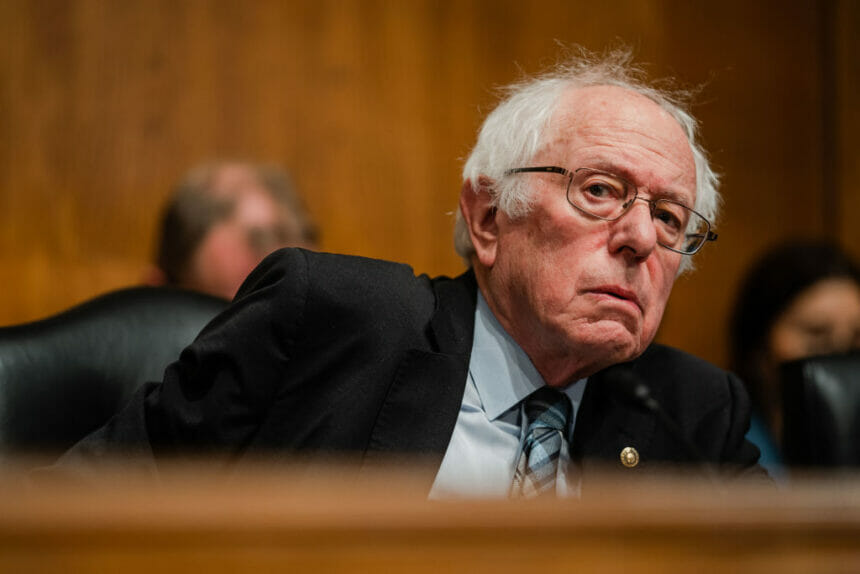Executives from insulin manufacturers and pharmacy benefit managers (PBM) testified during a hearing held by the Senate Health, Education, Labor and Pensions (HELP) Committee Wednesday afternoon.
HELP Committee chair Sen. Bernie Sanders, (I-Vt.), called the leaders to testify during a hearing titled “The Need to Make Insulin Affordable for All Americans.”
The hearing was held less than two months after Sanofi, Novo Nordisk and Eli Lilly announced that they would cap the cost of insulin and drugs used by patients with diabetes. The caps were put into place following a mix of public pressure and legislative action.
Last summer, the Inflation Reduction Act capped the monthly price of insulin at $35 for Medicare beneficiaries. Months later, President Biden called for a universal price cap during the State of the Union address.
The witnesses included Eli Lilly CEO David Ricks, Novo Nordisk CEO Lars Fruergaard Jørgensen, Sanofi CEO Paul Hudson, Express Scripts president Adam Kautzner, OptumRx CEO Heather Cianfrocco and David Joyner, EVP and president of pharmacy services at CVS Health
After briefly thanking the pharma execs for reducing the cost of insulin, Sanders pivoted by highlighting the issue of high list prices and the dangers associated with patients rationing care.
“Lowering the cost of insulin is only part of what we must accomplish,” Sanders said.
The hearing marked the latest testimony from a big-name pharma CEO. In March, Moderna CEO Stéphane Bancel testified about the company’s considered price hike for its COVID-19 vaccine to between $110 to $130 per dose.
However, unlike the Moderna grilling, the insulin hearing largely lacked the fireworks that many expected.
Below are some highlights from the much-anticipated hearing.
In probably the most compelling moment of the afternoon, Sen. Markwayne Mullin, (R-Ok.), said PBMs are essentially rebating themselves since they are owned by large health insurers and suggested shutting them down due to their ineffectiveness.
Pharma executives offered mixed responses to Sanders’ call for drugmakers to cap all list prices for insulin. Similarly, the PBM leaders didn’t explicitly commit to including the lowest cost medications on insurance formularies.
The PBM executives also batted back against the suggestion that drug rebates are increasing list prices and costs for patients.
However, in a tweet during the hearing, PhRMA, a trade group representing drugmakers, called out the leaders for saying that rebates don’t have anything to do with medicine price increases.
Meanwhile, the Campaign for Sustainable Rx Pricing pushed back on PhRMA’s representation of the Senate Finance studies, asserting that the three Big Pharma execs have “refused or caveated their answers to allow room to price-gouge patients in the future.”
Sen. Susan Collins, (R-Maine), questioned the six leaders about the gap between list and net prices, bringing out a large graph to illustrate her point.
“You would agree that this money does not find its way, in most cases, to the consumer at the pharmacy counter?” she asked.
On a positive note, Sen. Tim Kaine, (D-Va.), praised generic drug company Civica for their role in producing low-cost insulin. This comes more than a month after California Gov. Gavin Newsom announced that it selected Civica to produce insulin for the state and compete with brand-name drug companies in the space.








